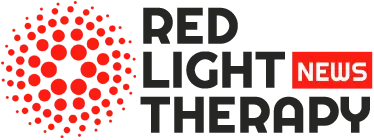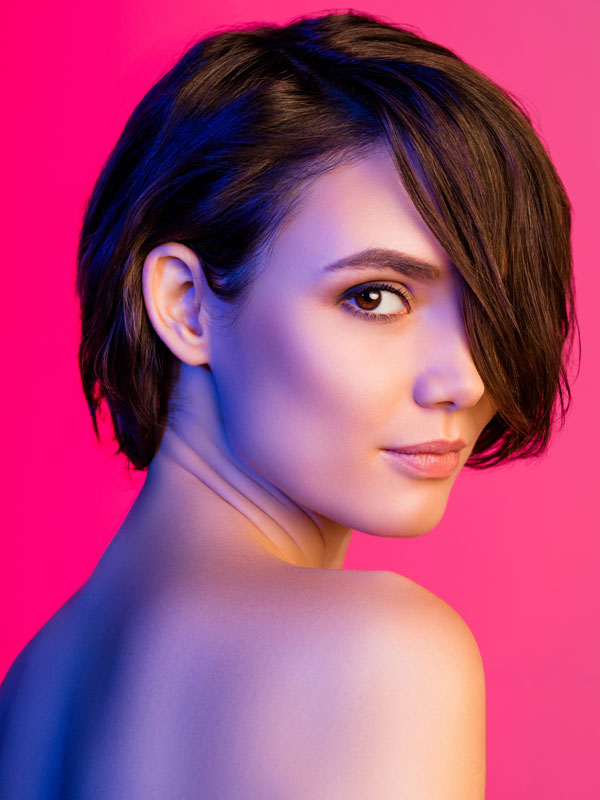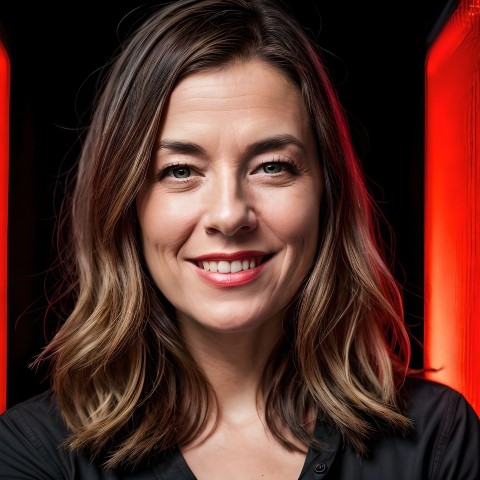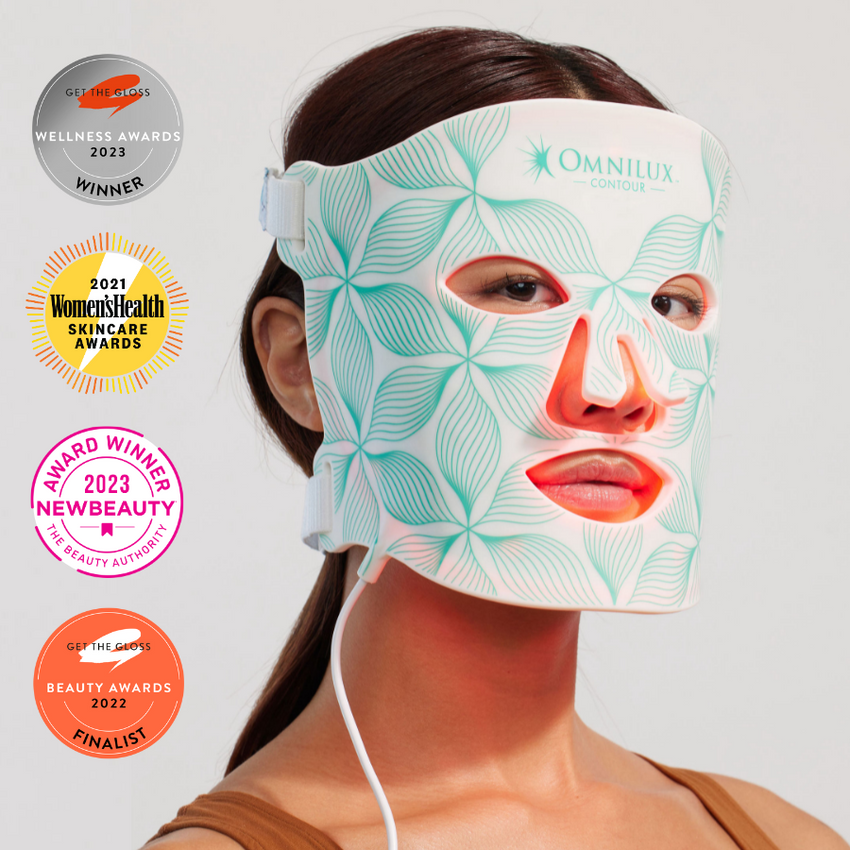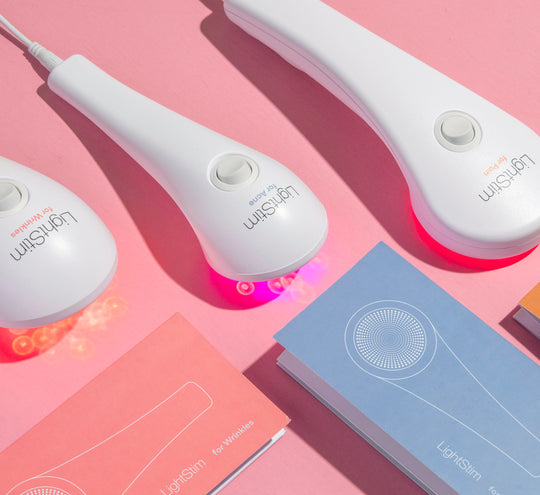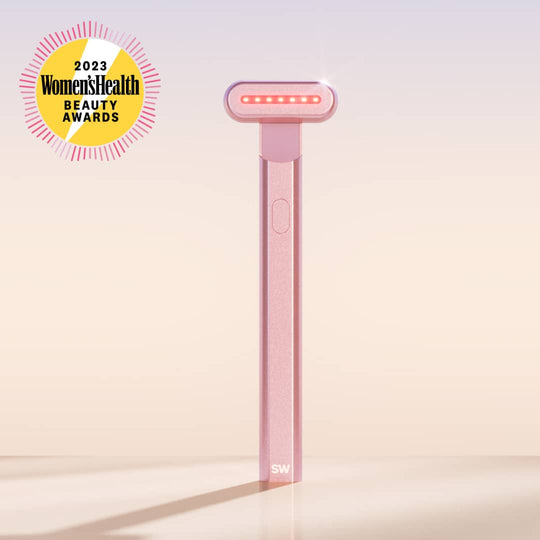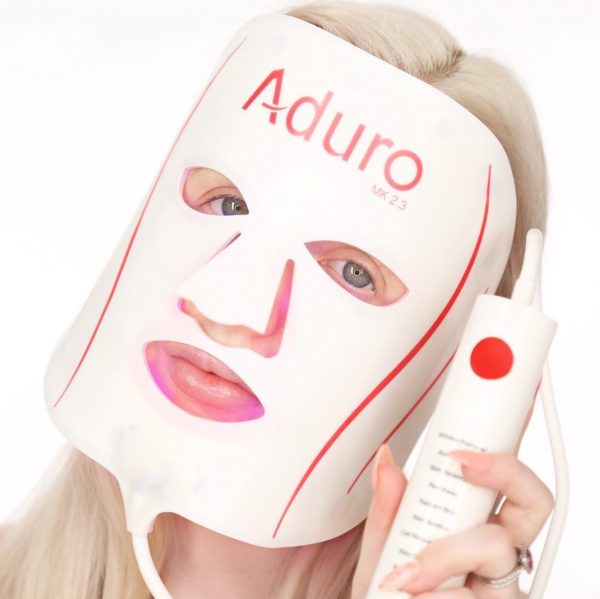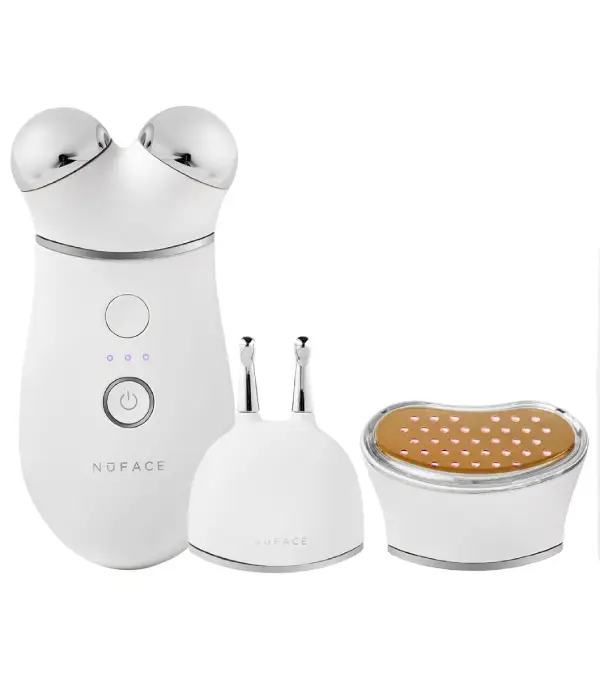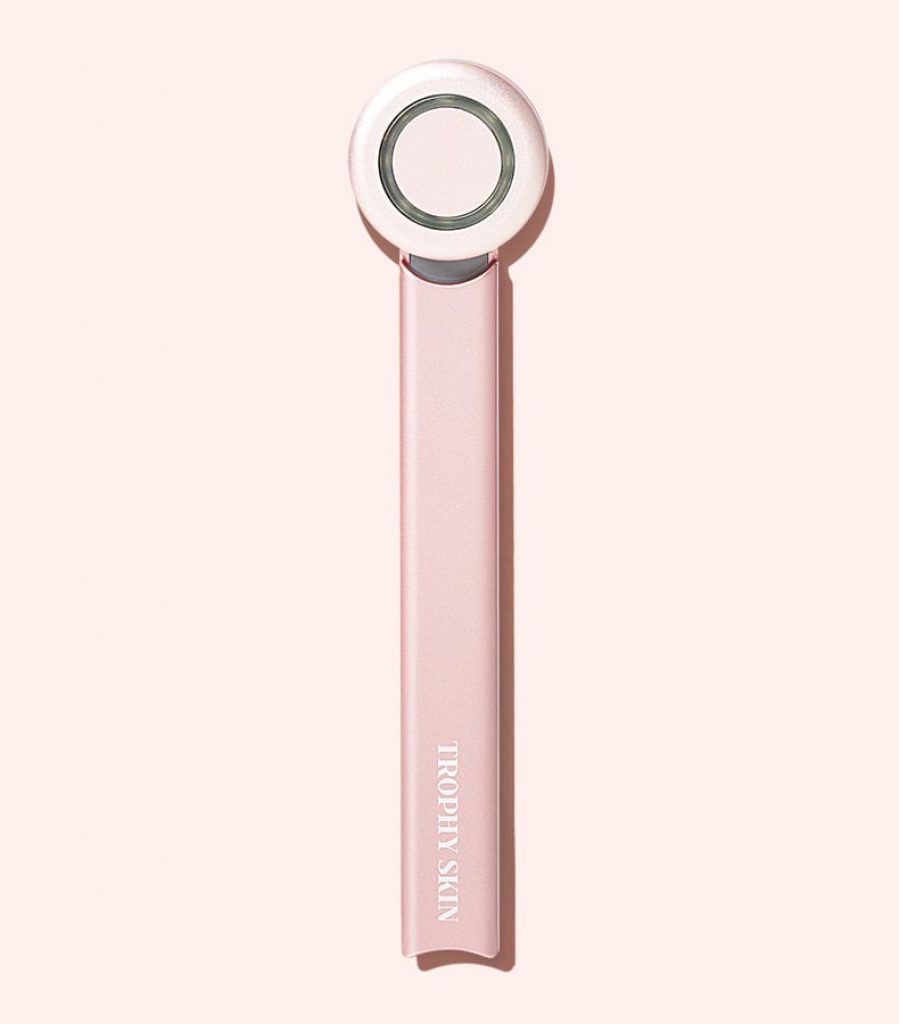Unlocking Radiance: The Top Picks for Flawless Skin
Red light therapy devices have taken the beauty world by storm, and it's easy to see why. With its deep-rooted place in both medical and aesthetic practices, this innovative technology promises a wide range of skin benefits without the invasive measures of traditional treatments.
Harnessing specific wavelengths of light, these devices aim to stimulate the body's natural healing processes, promoting collagen production, improving skin elasticity, and reducing visible signs of aging. Moreover, beyond just cosmetic benefits, they have been shown to aid in reducing inflammation, improving wound healing, and alleviating certain skin conditions like acne and rosacea.
However, with the market flooded with various models and brands boasting distinct features, it's vital to understand what makes a red light therapy device effective. Factors such as wavelength, power output, treatment duration, and device design can greatly influence the results you achieve.
Furthermore, while these devices offer the convenience of at-home treatments, it's crucial to use them as part of a broader skincare routine for the best results. This means combining light therapy with a balanced skincare regimen, including cleansing, moisturizing, and using sun protection.
Dive deeper as we explore the top red light therapy devices for skin care that truly stand out in terms of efficacy and value:
Points to keep in mind when deciding on the best red light therapy device for your skin:
Wavelength & Skin Concerns:
Different light colors used in LED light therapy offer distinct benefits based on their specific wavelengths. Depending on your skin condition and concerns some wavelengths will be more suitable than others for you. Here's a list of the common colors, their wavelengths, and the skin benefits associated with each:
Red Light (630-660 nm) – Benefits:
- Boosts collagen production.
- Reduces wrinkles and fine lines.
- Improves skin tone and texture.
- Promotes faster healing of wounds.
- Reduces inflammation and redness.
Blue Light (415-450 nm) – Benefits:
- Targets and kills the bacteria responsible for acne.
- Helps in treating mild to moderate acne.
- Reduces oil production in the skin.
- Can be used in conjunction with red light for combined benefits.
Green Light (520-530 nm) – Benefits:
- Helps in reducing hyperpigmentation.
- Lightens skin and reduces the appearance of sunspots.
- Soothes the skin and reduces redness.
Yellow Light (570-590 nm) – Benefits:
- Stimulates lymphatic drainage.
- Reduces the appearance of redness, flushing, and rosacea.
- Boosts circulation.
Purple Light (Combined red and blue) – Benefits:
- Combines the benefits of red and blue light.
- Helps in cell rejuvenation and promotes healing.
- Reduces inflammation from acne lesions.
Orange Light (590-610 nm) – Benefits:
- Boosts lymphatic flow.
- Improves skin hydration and complexion.
- Promotes a radiant glow.
Infrared Light (800-1200 nm) – Benefits:
- Goes deeper than red light, reaching muscles, bones, and joints.
- Promotes faster healing and reduces inflammation.
- Relieves pain and muscle tension.
Device Type and Ease of Use :
When it comes to optimizing skin health, Red Light Therapy (RLT) devices play a significant role. However, it's essential to consider the type of device you choose, factoring in not just the skin benefits but also the ease of use, power supply, and portability. After all, the best results from RLT come from consistent and regular treatments over several weeks, followed by maintenance sessions. Here's a breakdown of the various types of RLT devices suitable for skin health and what they're best for:
Handheld Devices:
- Best for: Targeted treatments on specific areas of the face or body.
- Ease of Use: These are typically lightweight and user-friendly.
- Power: Many come with rechargeable batteries, making them portable and convenient.
Face Masks:
- Best for: Comprehensive facial treatments focusing on wrinkles, fine lines, and overall skin rejuvenation.
- Ease of Use: Simply put them on and relax. Some models offer the flexibility to move around during treatment.
- Power: Both wired and wireless options are available, with many newer models offering rechargeable features.
Panel Systems:
- Best for: Treating larger body areas or multiple skin issues simultaneously.
- Ease of Use: They can be wall-mounted or placed on stands including for horizontal assembly for a relaxing treatment experience
- Power: These often need to be plugged into an outlet and aren't as portable as other options.
Flexible Pads:
- Best for: Contoured areas of the body, like the neck, joints, or specific facial regions.
- Ease of Use: Designed to conform to body shapes, making treatment more focused.
- Power: Usually battery-powered, they're perfect for on-the-go treatments.
Wearable Wraps:
- Best for: Treating specific body parts, such as arms, legs, or the waist.
- Ease of Use: Simply wrap around the desired area. These are adjustable and fit securely.
- Power: Many have built-in battery packs, providing a wire-free experience.
While all RLT devices offer therapeutic skin benefits, the choice of device can significantly impact your treatment experience. Consider your specific needs, desired treatment areas, and lifestyle when making a selection. Remember, the key to achieving the best results is regular and consistent use.
Quality, Efficacy and Safety
- Quality: Opt for durable, FDA-cleared devices from reputable brands.
- Efficacy: Ensure the device delivers the right wavelength (typically 600nm-1000nm) and provides adequate power.
- Safety: Look for safety features like timers or auto-shutoff and clear usage guidelines.
Remember, a worthy RLT device balances skin benefits with durability and user safety.
Red light Therapy for Skincare, What does the science say?
Red light therapy, often referred to as Low-Level Laser Therapy (LLLT), has gained considerable attention in recent years for its potential to address various skin concerns. A landmark study published in the journal “Photomedicine and Laser Surgery” in 2014 highlighted the efficacy of red and near-infrared light in improving skin texture and reducing fine lines and wrinkles among other benefits.
Additionally, another study published in the Journal of Seminars Cutaneous Medicine and Surgery on the Stimulating, Healing, and Restoring effects of Low-level laser (light) therapy (LLLT)on skin clearly highlighted the widespread benefits of this technology on a variety of skin conditions from wrinkles and acne or hypertrophic scars to and healing of burns or pigmentation concerns.
Both studies, among numerous others, underscore the science-backed benefits of red light therapy in skin care. For further information on the extensive benefits of this technology on skin please refer to our more in-depth article Red Light Therapy For Skin Care & Anti Aging and to the scientific references at the bottom of this page.
Experience the forefront of skincare technology with our choice of top red light therapy devices for 2023:
Omnilux Contour Face Mask
Omnilux Contour Face is a dermatologist-recommended red light therapy device that offers professional-grade skincare benefits right at home.
- Clinically-proven results
- Dermatologist-recommended
- Non-invasive treatment
- Individual results may vary
- Time commitment necessary
- Not for everyone
| Brand | Omnilux |
| Wavelength | 633nm (red) and 830nm (near-infrared) |
| Additional Specification | 132 (2 per LED bulb), 66 LED bulbs |
| Form | LED Mask |
| Main Application | Skin rejuvenation, fine lines, pigmentation, scars etc |
| Warranty | 2-year Warranty + 30 Days Money Back Guarantee |
Known for its advanced light therapy technology, this device is clinically proven to reduce fine lines, wrinkles, and pigmentation, stimulate collagen for firmer skin, and refine texture for a radiant glow.
It stands out as the market's most potent flexible LED device, boasting 132 medical-grade LEDs. Harnessing optimal red and near-infrared wavelengths, its proprietary technology ensures dermatological results, making it a superior choice for at-home skincare.
LightStim for Wrinkles
LightStim for Wrinkles is an FDA-cleared, home-use LED light therapy device that has been clinically proven to significantly reduce fine lines and wrinkles in just 8 weeks.
- Clinically proven to reduce wrinkles
- Utilizes advanced MultiWave® technology
- FDA Class II Registered
- Results may vary between individuals.
- Can't treat large areas
- Can't multi-task
| Brand | LightStim |
| Wavelength | LightStim MultiWave® Patented Technology |
| Additional Specification | Amber, Light Red, Dark Red and Infrared – 72 LEDs. |
| Form | Hand-held device |
| Main Application | Skin rejuvenation and repair |
| Warranty | 5-year Warranty for US purchases, 2-year for Worldwide |
Utilizing advanced LightStim MultiWave® Patented Technology, the device emits multiple wavelengths of light to rejuvenate your skin in a non-invasive and pain-free manner.
It is designed for lifelong use without requiring any cartridge or battery replacements.
Solawave 4-in-1 Radiant Renewal Skincare Wand
This Wand is an award-winning, at-home skincare tool that combines four proven technologies: Red Light Therapy, Galvanic Current, Facial Massage, and Therapeutic Warmth.
- Multi-functional device
- Quick results
- Portable for convenience
- Initial cost
- Requires time commitment
- Battery dependency
| Brand | Solawave |
| Wavelength | 630nm Red / LEDs: 7 / Output 40 – 45 mW/cm² |
| Additional Specification | Vibration: Built-in /Galvanic Current/ Battery LIfe 90 mins |
| Form | Hand-held device |
| Main Application | Skin rejuvenation and repair |
| Warranty | 1-year Limited Warranty – 30 Days Returns |
Ideal for on-the-go use, this device offers spa-grade facial treatment aimed at reducing fine lines, dark circles, blemishes, and puffiness.
Within weeks, it promises to make your skin look youthful and radiant by enhancing serum absorption leaving your skin rejuvenated.
Aduro LED Light Therapy Facial Mask
The Aduro LED Facial Mask is an innovative skincare tool inspired by advanced light technology, originally researched by NASA. This mask is designed to cater to the skin's natural responsiveness to specific light wavelengths.
- Multi-Functional
- Clinically Proven
- UV-Free
- Individual results may vary
- Power Source: Some users might find it inconvenient
| Brand | Aduro |
| Wavelength | Red light (620-630 nm.) Orange light (600-610 nm.) InfraRed light (830-870 nm) Yellow light (565-590 nm.) |
| Wavelength cont. | Green light (515-525 nm), Blue light (465-470 nm.), Purple light (400-420 nm.), Cyan light (500-520 nm.) |
| Additional Specification | 66 modules of 3 LEDs each, Tot 198 LEDs+20 infrared diodes |
| Form | LED Mask |
| Main Application | Skin rejuvenation, alleviating acne and other skin conditions |
| Warranty | 5-year Warranty |
With a spectrum of eight different light wavelengths available through 11 customizable settings, it offers an array of skin health benefits. This includes reducing wrinkles, addressing acne, enhancing skin tone, stimulating cellular rejuvenation, calming redness, and clarifying skin blemishes.
Endorsed by notable figures like Julia Roberts, this mask stands out for its holistic features:
Versatility: Beyond facial care, it can also be used for the neck, décolleté, and the delicate skin around the eyes.
Diverse Light Settings: 11 distinct treatments influenced by eight unique colors, inclusive of infrared light.
UV-Free: Designed to ensure zero exposure to harmful UV radiation.
Non-Invasive: A clinically supported treatment without the need for surgical procedures or needles.
Natural Approach: A healing process that sidesteps harsh chemicals.
NuFACE Trinity+
The NuFACE Trinity® is an award-winning device recognized for its clinical efficiency and FDA clearance.
- Clinically-proven results
- Long term benefits
- Fast results
- Only for facial use
- Time commitment necessary
| Brand | NuFACE® |
| Wavelength | Precise combination of red, amber, and infrared LED lights |
| Additional Specification | 3-Depth Technology, pro-level smart microcurrent |
| Form | Hand held device |
| Main Application | Skin rejuvenation, pore reduction, facial muscles tightening |
| Warranty | 2-year Warranty |
It employs advanced microcurrent technology, designed to tone, lift, and contour the face. Its sibling, the NuFACE Trinity®+, elevates these features with its innovative 3-Depth Technology and app integration. Both devices can be augmented with the NuFACE Trinity® Wrinkle Reducer Attachment.
This Wrinkle Reducer specifically addresses fine lines and deeper wrinkles, especially around the eyes, mouth, and forehead. It not only aids in improving circulation but also significantly boosts the anti-aging performance of the NuFACE Trinity® devices.
Distinguishing the NuFACE Trinity® Wrinkle Reducer from many other Red Light Therapy devices is its utilization of pulsed LED red light technology. It's believed that the pulsing action during sessions intensifies the light's ability to diminish lines and wrinkles.
Trophy Skin BrightenMd
The Trophy Skin BrightenMD is a remarkable entrant in advanced skincare, merging scientific methods with expert esthetician insights. This compact 4-in-1 facial tool offers a concise 5-minute daily routine, packed with benefits:
- Multi Functional
- Portable
- Affordable
- Individual results may vary
- Time commitment necessary
| Brand | Trophy Skin |
| Wavelength | 620-630nm – Medical Grade LEDs |
| Additional Specification | EMS Microcurrent + Heat Technology +Sonic Vibration |
| Form | Wand – Dimensions:2x5x1(in.) |
| Main Application | Anti aging, skin radiance, firming |
| Warranty | 1-year Warranty + 60 Money Back Guarantee |
Targeted Heat Therapy: By focusing on specific therapeutic heat, BrightenMD enhances blood flow and primes the skin for the treatments that follow.
Medical-Grade LEDs: Featuring red LED bulbs in the 620-630nm range, the device channels deep light energy for cellular rejuvenation.
Microcurrent Benefits: Using Electrical Muscle Stimulation (EMS), BrightenMD, when paired with your favorite serums, can refine skin texture and boost overall appearance.
Sonic Vibration: These ultrasonic waves not only awaken the skin but also help with more effective serum absorption.
Radiance Boost: True to its name, BrightenMD aims to give skin a visible glow with its facial massage capabilities.
Anti-Aging Power: Combat signs of aging like fine lines with its potent red light therapy.
Maximized Efficacy: The combination of heat and sonic vibrations ensures skincare products work deeper and more efficiently.
With regular use, the tool promises not just revitalized skin but also a more youthful appearance over time.
Who Should Not Use Red Light Therapy Devices For Skincare and Skin Rejuvenation?
Red light therapy is considered safe for most people, but it's not recommended for individuals with light-sensitive skin conditions, those who have had recent laser surgery or a chemical peel, those taking photosensitizing medications, pregnant or breastfeeding women, or people with a history of skin cancer. It is always recommended to consult with a medical professional before starting any new treatment and to read the manufacturer's instructions for optimal results.
Frequently Asked Questions
How does red light therapy work for skin rejuvenation?
Red light therapy works by penetrating the skin and stimulating collagen production which can lead to firmer, more youthful-looking skin. It also reduces inflammation and promotes healing which can improve skin conditions such as acne, psoriasis and eczema.
How often should I use a red light therapy device for skin rejuvenation?
It is recommended to use a red light therapy device for skin rejuvenation 2-3 times per week for at least 10-15 minutes per session. But it's always recommended to follow the manufacturer's instructions for optimal results.
Can red light therapy be used on all skin types?
Red light therapy is generally safe for most skin types but those with light-sensitive skin conditions such as lupus or xeroderma pigmentosum should avoid it. It's always recommended to consult with a medical professional before starting any new treatment, especially if you have any pre-existing condition.
What is Red Light Therapy (RLT) and how does it benefit the skin?
RLT is a non-invasive treatment that uses specific wavelengths of light to stimulate cellular activity, promoting collagen production, reducing inflammation, and improving overall skin health. It can help reduce fine lines and wrinkles, and treat conditions like acne and rosacea.
How often should I use an RLT device for skincare?
Typically, for optimal results, it's recommended to use RLT devices 3-5 times a week. However, always follow the manufacturer's guidelines and consult with a dermatologist.
Can I use RLT in conjunction with other skincare products or treatments?
Yes, RLT can complement other skincare routines and products. It's often recommended to apply serums or moisturizers post-treatment to enhance skin hydration.
Are there any side effects associated with using RLT for skincare?
RLT is generally considered safe with minimal side effects. Some individuals might experience slight redness post-treatment, but this usually subsides within a few hours.
How long does it take to see results from using an RLT device?
While some individuals notice improvements within a few sessions, it generally takes 8-12 weeks of consistent use to observe significant changes in skin quality and appearance.
Is RLT safe for all skin types?
Yes, RLT is suitable for all skin types. However, if you have specific skin conditions or are photosensitive due to certain medications, it's essential to consult with a dermatologist before starting treatment.
Can I use RLT devices if I'm pregnant?
While RLT is non-invasive and generally considered safe, it's always best to consult with a healthcare professional if you're pregnant or breastfeeding before using any new skincare device or treatment.
Red light therapy is a type of therapy that uses red or near-infrared light to treat a variety of conditions. During a red light therapy session, a person is exposed to a specific wavelength of red or near-infrared light that is delivered through a light-emitting device. The light penetrates the skin and reaches the cells within the body with a range of therapeutic effects.
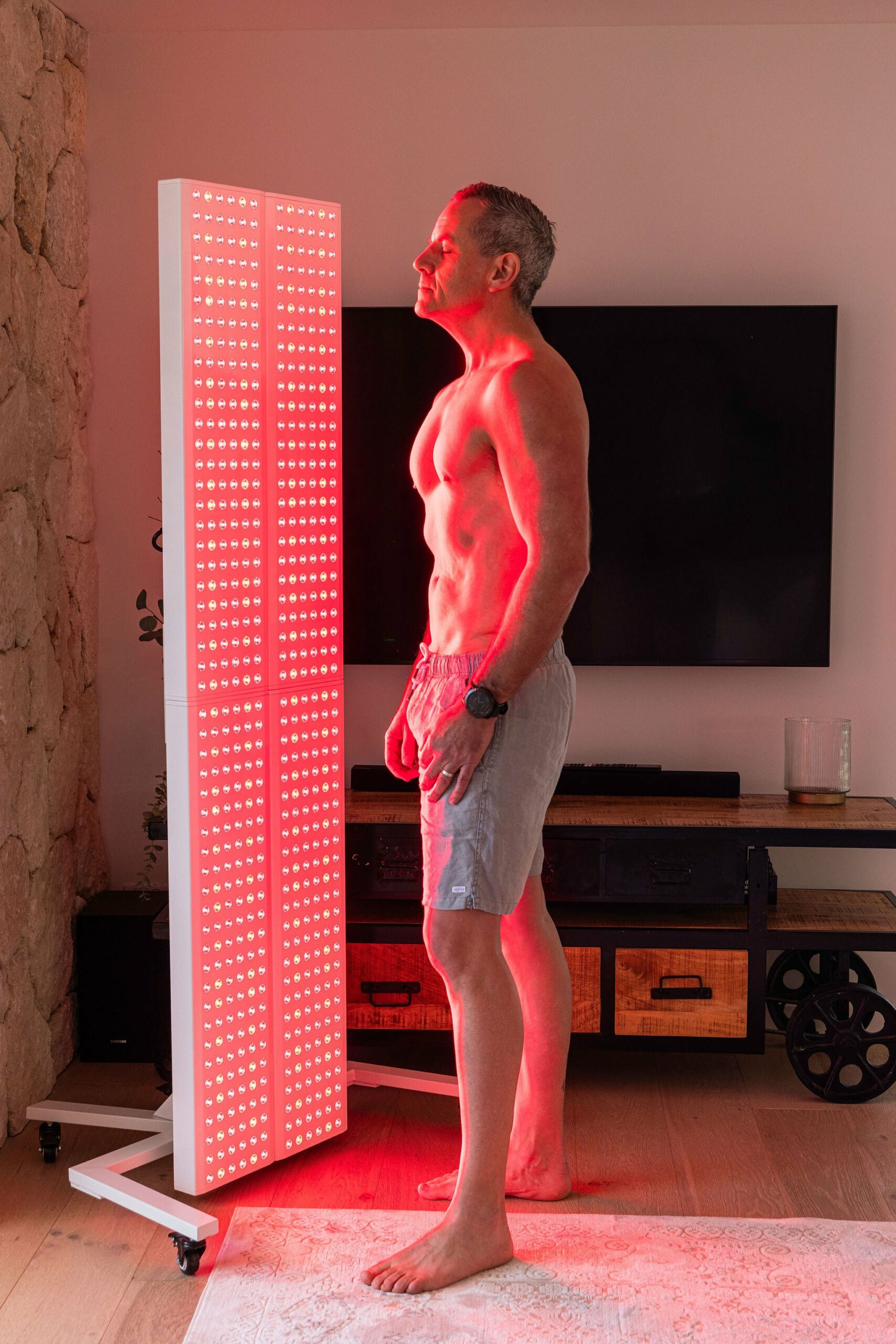
Red light is a type of visible light, Its wavelength falls between approximately 630 and 700 nanometers (nm) on the electromagnetic spectrum. Red light is often used in light therapy treatments for the skin, as it has been shown to have the most beneficial effects on skin cells and collagen production.
Near-infrared (NIR) light, on the other hand, has a longer wavelength than visible red light and falls between approximately 700 and 1200 nm on the electromagnetic spectrum. NIR light is not visible to the human eye, but it can penetrate deeper into the skin and other tissues than visible light, making it useful for a variety of therapeutic applications ranging from wound healing to inflammation reduction or improved circulation, among other benefits.
Different Red Light Therapy devices usually deliver slightly different wavelength ranges that research has shown to be the most effective for the concern they are being recommended for.
Red Light Therapy (RLT) strengthens the mitochondria, the cell’s powerhouse, where cell energy is created. Adenosine Triphosphate (ATP) is the critical energy-carrying molecule that is found in all living organisms. By optimizing the function of the mitochondria, more ATP is produced and with increased energy cells can function optimally.
This scientific breakthrough resulted in scientists discovering Red Light Therapy’s ability to stimulate and speed up tissue repair and growth. Red Light Therapy is now widely used for maintaining a healthy complexion, speeding up muscle recovery, reducing inflammation, improving sleep, treating neurological conditions, balancing hormones, treating pain, and even losing weight.
Research has also indicated that Red Light Therapy can help to restore cellular balance and alleviate the negative impact of blue light exposure. The prevalence of blue light in our society has become a growing concern as many individuals spend prolonged periods of time looking at screens on a daily basis.
Red Light Therapy (RLT) is also called:

Low-Level Light Therapy (LLLT), Photobiomodulation (PBM), Cold Laser Therapy, Photonic Stimulation, Low-Power Laser Therapy (LPLT), Phototherapy
A Brief History of Red Light Therapy
The journey of Red Light Therapy (RLT) has been both fascinating and impactful, starting from its humble origins in the late 19th century. Dr. Niels Ryberg Finsen, the pioneer in light therapy, made a groundbreaking discovery in 1896 that light could be harnessed to treat Lupus Vulgaris, a form of tuberculosis affecting the skin. His work, which led to the tangible healing of skin lesions, was so revolutionary that he received the Nobel Prize in Physiology in 1903.
Fast forward to 1960, Theodore H. Maiman invented the first operational laser, fulfilling Albert Einstein's theories on the principles of lasers laid out in 1917. This invention opened new avenues for RLT, allowing more precise applications.

NASA took an interest in Red Light Therapy in 1987, conducting experiments to examine its effects on plant growth in space missions. These studies hinted at RLT's potential to benefit not just human health but also broader ecological systems.
In the same vein, Endre Mester's work in 1967 set the stage for modern RLT applications.
His experimentation with low-level laser therapy on skin cancer effects demonstrated the technique's efficacy and led to FDA approval for wound healing in 2002.
The advent of LED technology in the 1990s was a game-changer, offering an efficient and cost-effective alternative to traditional light bulbs. This technological leap made light therapy more accessible to the general public, including its use in sports medicine where physical therapists reported quicker recovery times for sports-related injuries.
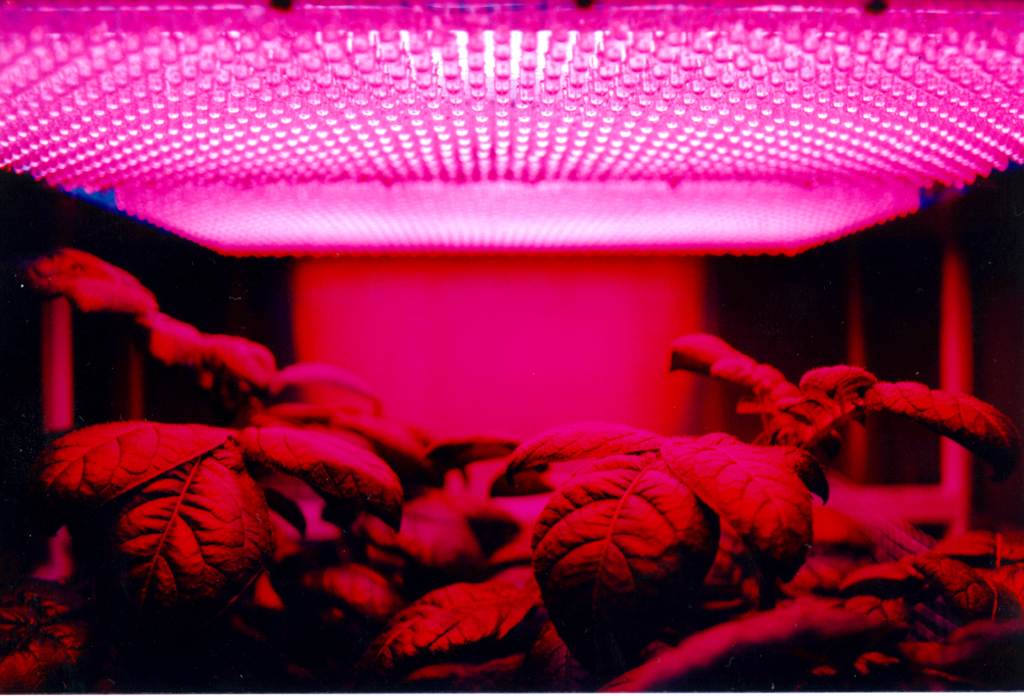
One of the most recent and exciting developments in RLT is its potential role in weight management. Studies indicate that Red Light Therapy can influence hormones like Leptin and Ghrelin, which play key roles in regulating appetite and metabolism. This makes RLT a promising avenue for non-invasive weight loss treatments.
As RLT continues to evolve, its applications keep expanding, crossing multiple disciplines from medicine to ecology. Researchers are continuously probing its potential, finding new ways to apply this age-old yet ever-advancing technology.
Our articles exclusively rely on primary sources of information, encompassing peer-reviewed medical journals and esteemed academic institutions.
- Mitochondria—Fundamental to Life and Health: https://www.ncbi.nlm.nih.gov/pmc/articles/PMC4684129/
- Effect of Blue Light on Acne Vulgaris: A Systematic Review: https://www.ncbi.nlm.nih.gov/pmc/articles/PMC8537635/
- Photodynamic And Photobiological Effects Of Light-Emitting Diode (LED) Therapy In Dermatological Disease: An Update: https://link.springer.com/article/10.1007/s10103-018-2584-8
- Clinical Efficacy of Self-applied Blue Light Therapy for Mild-to-Moderate Facial Acne: https://www.ncbi.nlm.nih.gov/pmc/articles/PMC2923954/
- A study to determine the efficacy of combination LED light therapy (633 nm and 830 nm) in facial skin rejuvenation https://www.researchgate.net/publication
- Phototherapy with Light Emitting Diodes: Treating a Broad Range of Medical and Aesthetic Conditions in Dermatology: https://www.ncbi.nlm.nih.gov/pmc/articles/PMC5843358/
- Low-Level Red And Infrared Light Increases Expression Of Collagen, Elastin, And Hyaluronic Acid In Skin: https://www.jaad.org/article/S0190-9622%2819%2933160-3/fulltext
- https://www.researchgate.net/publication/7357264_A_Study_To_Determine_The_Efficacy_Of_Combination_LED_Light_Therapy_633_Nm_And_830_Nm_In_Facial_Skin_Rejuvenation
- Dual Effect of Photobiomodulation on Melasma: Downregulation of Hyperpigmentation and Enhanced Solar Resistance—A Pilot Study: https://www.ncbi.nlm.nih.gov/pmc/articles/PMC5891084/
- Photobiomodulation: The Clinical Applications of Low-Level Light Therapy: https://pubmed.ncbi.nlm.nih.gov/33471046/
- Neonatal jaundice: phototherapy. BMJ Clinical Evidence, 2015, 0319. https://www.ncbi.nlm.nih.gov/pmc/articles/PMC4440981/
- Low-Intensity Light Therapy: Exploring the Role of Redox Mechanisms. Photomedicine and Laser Surgery, 26(4), 323–328. https://doi.org/10.1089/pho.2007.2184
- The Nobel Prize in Physiology or Medicine 1903. https://www.nobelprize.org/prizes/medicine/1903/summary/
- A NASA discovery has current applications in orthopaedics. Current Orthopaedic Practice, 26(1), 72–74. https://doi.org/10.1097/BCO.0000000000000196
- Why does skin wrinkle with age? What is the best way to slow or prevent this process? Scientific American. https://www.scientificamerican.com/article/why-does-skin-wrinkle-wit/
- A Controlled Trial to Determine the Efficacy of Red and Near-Infrared Light Treatment in Patient Satisfaction, Reduction of Fine Lines, Wrinkles, Skin Roughness, and Intradermal Collagen Density Increase. Photomedicine and Laser Surgery, 32(2), 93–100. https://doi.org/10.1089/pho.2013.3616
- LED lights: Are they a cure for your skin woes? https://www.health.harvard.edu/diseases-and-conditions/led-lights-are-they-a-cure-for-your-skin-woes
- Red/Near Infrared Light Stimulates Release of an Endothelium Dependent Vasodilator and Rescues Vascular Dysfunction in a Diabetes Model. Free Radical Biology and Medicine, 113, 157–164. https://doi.org/10.1016/j.freeradbiomed.2017.09.012
- Effect of 660 nm visible red light on cell proliferation and viability in diabetic models in vitro under stressed conditions. Lasers in Medical Science, 33(5), 1085–1093. https://doi.org/10.1007/s10103-017-2432-2
- Mechanisms and applications of the anti-inflammatory effects of photobiomodulation. AIMS Biophysics, 4(3), 337–361. https://doi.org/10.3934/biophy.2017.3.337
- Effects of low-power light therapy on wound healing: LASER x LED. Anais Brasileiros de Dermatologia, 89(4), 616–623. https://doi.org/10.1590/abd1806-4841.20142519
- Infrared and Skin: Friend or Foe. Journal of Photochemistry and Photobiology B: Biology, 155, 78–85. https://doi.org/10.1016/j.jphotobiol.2015.12.014
- Light-emitting diodes at 830 and 850 nm inhibit melanin synthesis in vitro. Acta Dermato-Venereologica, 92, 675–680. https://doi.org/10.2340/00015555-1319
- Light-based therapies in acne treatment. Indian Dermatology Online Journal, 6(3), 145–157. https://doi.org/10.4103/2229-5178.156379
- Light emitting diode-red light for reduction of post-surgical scarring: Results from a dose-ranging, split-face, randomized controlled trial. Journal of Biophotonics, 14(7), e202100073. https://doi.org/10.1002/jbio.202100073
- Effect of 660 nm Light-Emitting Diode on the Wound Healing in Fibroblast-Like Cell Lines. International Journal of Photoenergy, 2015, Article ID 916838. https://doi.org/10.1155/2015/916838
- Effect of Low-Level Laser Therapy on Proliferation and Collagen Synthesis of Human Fibroblasts in Vitro. Journal of Wound Management and Research, 14(1), 1-6. https://doi.org/10.22467/jwmr.2018.00283
- Low-level red and infrared light increases expression of collagen, elastin, and hyaluronic acid in skin. Journal of the American Academy of Dermatology, 81(4), AB434. https://doi.org/10.1016/j.jaad.2019.10.089
- Red light-promoted skin barrier recovery: Spatiotemporal evaluation by transepidermal potential. PLOS ONE, 14(7), e0219198. https://doi.org/10.1371/journal.pone.0219198
- Low-level red plus near infrared lights combination induces expressions of collagen and elastin in human skin in vitro. International Journal of Cosmetic Science, 43(3), 311-320. https://doi.org/10.1111/ics.12698
- Red Light Phototherapy Using Light-Emitting Diodes Inhibits Melanoma Proliferation and Alters Tumor Microenvironments. Frontiers in Oncology, 12. https://doi.org/10.3389/fonc.2022.928484
- The effects of low power laser light at 661 nm on wound healing in a scratch assay fibroblast model. Lasers in Medical Science, 38(1), 27. https://doi.org/10.1007/s10103-022-03670-5
- Clinical Effectiveness of Broad-band Infrared Light Therapy for Wrinkles and Skin Laxity of the Face. Journal of Clinical and Experimental Dermatological Research, 5(5). https://doi.org/10.4172/2155-9554.1000233
- Safety of light emitting diode-red light on human skin: two randomized controlled trials. Journal of Biophotonics, 13(3), e201960014. https://doi.org/10.1002/jbio.201960014
- Clinical effects of high-intensity laser therapy on patients with chronic refractory wounds: a randomised controlled trial. BMJ Open, 11, e045866. https://doi.org/10.1136/bmjopen-2020-045866
- Low-Level Laser (Light) Therapy (LLLT) in Skin: Stimulating, Healing, Restoring. Seminars in Cutaneous Medicine and Surgery, 32, 41-52. https://scmsjournal.com/articles/view_pdf/low-level-laser-light-therapy-lllt-in-skin-stimulating-healing-restoring
- Low Level Laser Therapy for the Treatment of Chronic Wound: Clinical Considerations. Biomedical and Pharmacology Journal, 8(2). https://dx.doi.org/10.13005/bpj/866
- The Need for Increased Attention to Low‐Level Laser Therapy as Treatment for Wounds and Ulcers. In Wound Healing – New insights into Ancient Challenges. https://doi.org/10.5772/64339
- Photodynamic and photobiological effects of light-emitting diode (LED) therapy in dermatological disease: an update. Lasers in Medical Science, 33, 1431–1439. https://doi.org/10.1007/s10103-018-2584-8
- Photobiomodulation in Dermatology: Harnessing Light from Visible to Near Infrared for Medical and Aesthetic Purposes. Medical Research Archives, 6(1). https://esmed.org/MRA/mra/article/view/1610/1689
- Photobiomodulation: The Clinical Applications of Low-Level Light Therapy. Aesthetic Surgery Journal, 41(6), 723–738. https://doi.org/10.1093/asj/sjab025
